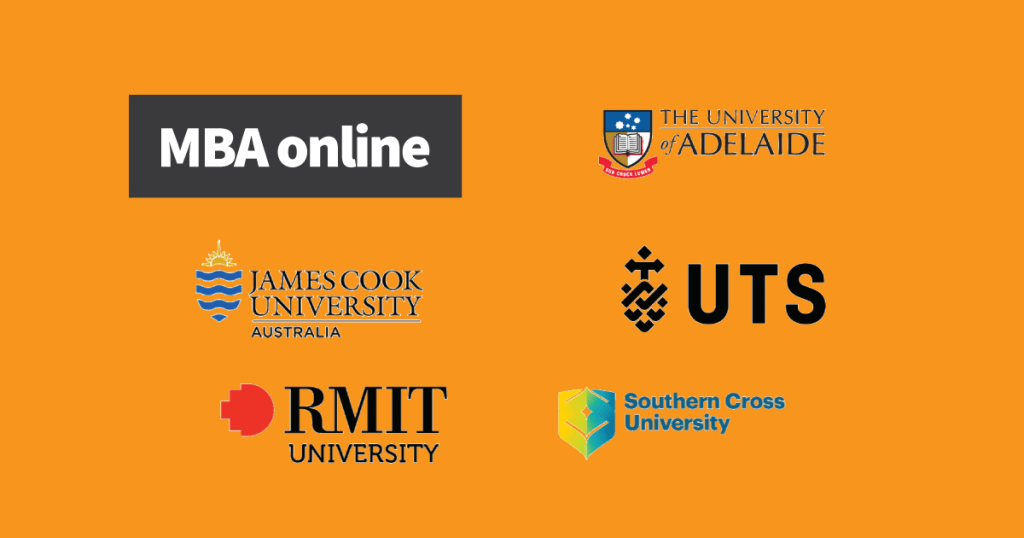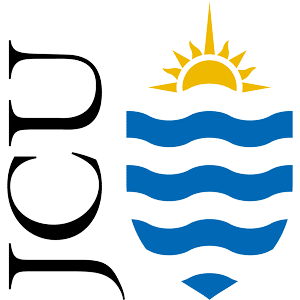Let's dive into Australia's top online MBA programs. Each offers flexible study on your terms.
1. University of Technology Sydney
Customise your MBA studies at UTS Online with a major in Business Analytics, Digital Marketing, Health, Organisational Learning, or Technology Management. Alternatively, you can opt for the Flex Stream, allowing a mix-and-match approach across any specialisation.
Structure: 12 subjects divided into 7-week study blocks.
Duration: 2 years part-time.
Tuition fees: $4,383 per subject in 2024.
Admission: In addition to an undergraduate degree, applicants must either have a GPA of 5.25 on a 7-point scale, at least four years of relevant work experience, or a GMAT score of 550+.
Students develop skills in leadership, marketing technology, and decision-making in accounting. They further enhance their knowledge in economic management, data analysis, financial principles, and sustainability. The program includes strategic negotiation, leading to a capstone project. Elective options from specialised or flexible streams enrich the educational journey.
2. James Cook University
The MBA Global program at JCU Online produces graduates with the knowledge to lead confidently, backed by corporate expertise and data insights. A big-picture perspective is emphasised throughout this thoroughly modern course.
Structure: 12 subjects, each completed over a 7-week study period.
Duration: 24 months part-time.
Tuition fees: $3,700 per subject. FEE-HELP is available.
Admission: As a rough guide, 2+ years' work experience and a degree OR 4 year's managerial experience.
Students gain skills to make strategic, impactful decisions based on a holistic view of global trends and data insights. The curriculum improves knowledge in three key areas: Global Perspective and Strategies, Data-driven Decision Making, and Organisational Leadership and Management.
3. Southern Cross University
The online business school at Southern Cross University has been deliverying its highly affordable MBA for more than a decade. It's popular for the low price but also for the convenience and flexibility of this well-balanced program.
Structure: Core units plus 2 electives and a double-weighted Industry Project. 7-week study blocks.
Duration: 24 months part-time, depending on advanced standing.
Tuition fees: $3,080 per uni in 2024.
Admission: A bachelor degree or professional experience deemed equivalent by SCU.
Students enhance their skills in team leadership, data-driven decision-making, strategic planning, change management, and uncertainty handling. Choose from specialisations such as Accounting, Health Services Management, Information and Knowledge Management, or Managing and Leading People.
4. RMIT University
RMIT University's program offers a future-oriented curriculum designed to help students thrive in the evolving world of Industry 4.0. Students customise their MBA through a selection of minors, thereby focusing on areas they are most passionate about.
Structure: 8 core courses and either 8 or 4 minor units, each delivered over a 7-week study period.
Duration: Approximately 2 years part-time, depending on prior degree and experience.
Tuition fees: $4,680 per course in 2024.
Admission: A bachelors degree (or equivalent or higher qualification), in any discipline with a minimum GPA of 1.0 (out of 4.0), or a GMAT overall minimum score of 550.
Students in this program will gain practical knowledge, learning the latest advances in technology, digital trends, design thinking methodologies, and authentic leadership. They will also have opportunities to interact with leading industry experts and world-class academics.
5. University of Adelaide
The University of Adelaide offers a comprehensive program designed to cultivate graduates ready for leadership roles in any sector. This highly interactive course develops business acumen, administration, management, and entrepreneurial skills required for modern business.
Structure: A series of 12 courses, each delivered in a six-week block.
Duration: 24 months part-time.
Tuition fees: $4,986 per subject in 2024.
Admission: 2+ years' work experience, plus either a bachelor degree or a GMAT score of 500+.
Students learn leadership skills, business strategy creation, entrepreneurial techniques, and how to navigate the complexities of the business environment. Rather than offering specialisations, the business school focuses on building your adaptability, resilience, and cross-functional understanding to thrive in any context.
Why These Degrees Are Good

The best universities for an online MBA share certain common attributes. The programs are available 100% online and are designed for part-time study by working professionals. They allow flexible study at your convenience.
Each program in the MBA ranking is also structured so that you focus on a single subject at a time. Units are completed one at a time during 6-7 week study blocks. There are also no final exams, with assessments generally being continuous.
Even without a bachelor's degree, you can do an MBA. Online business schools offer pathway programs like the Graduate Certificate in Business Administration and may recognise professional experience as a degree equivalent.
Related: Is an MBA Worth It Australia? Salary Benefits
Why an Online MBA is Valid
An online Master of Business Administration is globally recognised, opening doors for career advancement opportunities. You can confidently enroll, knowing the degree is a worthwhile investment that is respected by employers.
Recruiters typically do not differentiate between on-campus and online degrees. In fact, completing an MBA online demonstrates attributes such as discipline, motivation, and self-reliance, which are highly sought after professionally.
An online MBA is a popular choice for working professionals aiming for career progression. Students gain practical skills and a globally recognised qualification. Graduates of Australian MBA schools command high salaries, highlighting the degree's potential to create career opportunities.
Related: Is an Online MBA Valid in Australia?
Differences With an Online MBA

The key difference between an online MBA and a regular Master of Business Administration is the fully online mode of delivery. While you may attend classes with an online MBA, these are only ever virtual. You never have to travel as part of your studies.
Advantages
Online MBA courses offer notable advantages.
- Study flexibility allows you to juggle work, family, and education commitments.
- Lower costs, with online MBA degrees around $18,620 cheaper on average.
- Students develop essential digital skills in today's tech-driven workforce.
Disadvantages
However, potential disadvantages should also be considered.
- Limited local networking opportunities may result from the absence of face-to-face interaction.
- High self-discipline is needed, as online learning demands a high level of independence.
- Less immersive learning experience due to virtual, rather than in-person, instruction and interaction.
Which is better?
The convenience and efficiency of online programs, especially the elimination of travel requirements, make them particularly appealing to working professionals with busy schedules who prefer to study part-time.
However, if you value substantial interpersonal interactions, face-to-face learning might be the better choice. Some MBA students, particularly those in their early to mid-20s, may not feel prepared to complete an entire degree online. The hardest part about doing an MBA can often be maintaining consistent motivation, as opposed to handling the coursework itself.
Related: Is an Online MBA Worth It?
Which MBA Is in High Demand in Australia?

Finance may be the most in-demand MBA specialisation in Australia. The appeal comes from its high average salary of $126k per year, making it an attractive choice for prospective students looking to maximise their return on investment.
Other specialisations offering significant earnings potential include Healthcare Management and Business Analytics. These fields offer graduates close to $105k and $106k respectively, promising substantial financial benefits upon completion of the program.
Finally, Digital Marketing and Technology Management are also seeing high demand. With an average salary of around $98k, these specialisations are sought after by those looking to advance their careers in these rapidly evolving sectors.
Source: MBA Fields in High Demand




